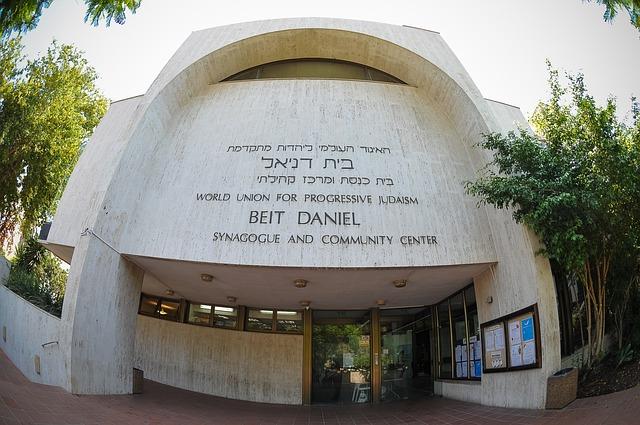As germany heads into what has become an unexpectedly turbulent electoral season, the political landscape is shifting rapidly, leaving both voters and analysts grappling with uncertainty and intrigue. The upcoming election, originally anticipated to be a routine exercise in democracy, is now marked by rising tensions, unexpected alliances, and a backdrop of pressing social and economic challenges. From the resurgence of populist sentiments to debates over climate policy and the handling of migration, a constellation of issues has ignited passionate discourse across the nation. As parties jockey for position and public sentiment evolves, this article will delve into the key factors shaping Germany’s electoral narrative, explore the implications of these developments for the future of the country, and examine how this intricate political tapestry reflects broader trends within Europe and beyond.
Impacts of Rising Populism on Germanys Political Landscape
The emergence of populism in Germany has created a seismic shift in the political landscape, reshaping the dynamics between mainstream parties and giving rise to new political players. This trend has led to an increasing polarization within the electorate, as citizens become gravitated towards populist narratives that promise to address their grievances. As a result,traditional parties are compelled to reevaluate their strategies to retain voter loyalty,often adopting more radical stances on issues such as immigration,economic inequality,and national identity. The perception of an “us versus them” dichotomy has become pronounced, highlighting cultural and social divides that previously lay beneath the surface.
Furthermore, the rise of populism has spurred a series of electoral challenges for established parties, particularly the Social Democrats (SPD) and the Christian Democratic Union (CDU).To illustrate this point, consider the following impacts:
- Increased Voter Disenchantment: Traditional constituents express disappointment with the establishment, opening the door for populist candidates.
- Shift in Policy Platforms: Mainstream parties feel pressured to adopt more populist policies to reclaim lost voters.
- Fragmentation of the Political Spectrum: The growth of parties like the Alternative for Germany (AfD) complicates coalition-building and governance.
| Impact | Example |
|---|---|
| Electoral Gains for Populists | A notable increase for AfD in recent state elections. |
| Policy Concessions | CDUS tougher stance on immigration following public pressure. |
| Increased Turnout | Record voter turnout in response to populist rhetoric. |

Voter Discontent and the Fragmentation of Traditional Parties
The prevailing sentiment among voters is gradually shifting, revealing deep-seated discontent with traditional political parties in Germany. Many citizens feel increasingly alienated from mainstream political platforms, perceiving them as disconnected from the pressing issues of daily life. the rise of alternative parties reflects this dissatisfaction as voters seek to assert a voice that resonates with their values and concerns. Notably, a significant segment of the population believes that established parties have failed to adequately address critical topics such as climate change, economic instability, and social inequality. This growing disenchantment poses significant challenges, as metrics such as unemployment rates, housing shortages, and healthcare pressures remain significant stressors for many constituents.
As the electoral landscape evolves, fragmentation among traditional parties has become pronounced. Formerly dominant political entities are grappling with a decline in voter loyalty, leading to a splintering of the electorate across multiple platforms. The following factors contribute to this fragmentation:
- A rise in populism: New parties have harnessed the power of grassroots movements and social media to challenge established norms.
- generational divides: Younger voters prioritize progressive policies on social issues, creating a stark contrast with the older electorate.
- Economic inequality: Perceived failures to address wealth disparities have fueled discontent.
This fragmentation raises questions about governance and policy-making efficiency as coalitions become increasingly necessary to achieve legislative outcomes. In this changing surroundings, traditional parties must adapt to survive, or risk becoming relics in an era defined by rapid political evolution.

Challenges Facing Coalition Governance in a Changing Climate
The current landscape of coalition governance in Germany is riddled with challenges exacerbated by a rapidly changing climate. Political leaders must navigate an increasingly polarized electorate while balancing the diverse agendas of coalition partners.Issues such as energy transition, sustainability, and climate justice are increasingly at the forefront of public discourse, demanding collective action and coherent policy-making. However, the differing priorities of coalition members can hinder progress, leading to gridlock and inefficiency in addressing urgent environmental issues.
Moreover, the call for a more sustainable economy requires immediate and bold decisions, which are often met with resistance from various stakeholders. As the German government continues to grapple with economic pressures alongside climate commitments, it faces the following critical hurdles:
- Fragmented Policy Focus: Each coalition partner may prioritize different aspects of climate action, making it hard to formulate a unified strategy.
- Public Dissent: growing public awareness and activism creates a precarious balance, with citizens demanding faster action while politicians seek compromise.
- Resource Allocation: Dividing limited resources among competing priorities complicates efforts to implement effective climate measures.
| Challenge | Impact |
|---|---|
| Policy Fragmentation | Leads to stalled initiatives and public frustration |
| Public Dissent | increases pressure on leaders to act decisively |
| Resource Limitations | Creates conflict over funding between climate and other needs |

Strategies for Stability: Recommendations for Future Electoral Reforms
As Germany grapples with unprecedented electoral challenges, it becomes essential to explore innovations that could bolster political stability and enhance democratic engagement. One avenue is the implementation of ranked-choice voting, which would allow voters to prioritize candidates based on preference, minimizing the impact of splitting the vote and providing a more thorough representation of public sentiment. Additionally, expanding proportional representation in party systems could ensure smaller parties gain necessary footholds in the bundestag, reflecting the diverse views within the electorate. Encouraging civic education programs that inform citizens about their electoral systems and the importance of their participation can further empower the populace.
Moreover, introducing mandatory campaign finance clarity could mitigate the influence of money in politics, fostering a more equitable playing field for all candidates, irrespective of their funding sources. Establishing autonomous electoral commissions to oversee election logistics and ensure fair practices can reinforce public trust in the outcomes.Lastly, the adoption of digital voter engagement platforms could ease access to details and mobilization efforts, particularly among younger voters. These tailored reforms could considerably reduce electoral volatility, creating a more stable political landscape in the years to come.

In Conclusion
As Germany stands at a pivotal crossroads, the implications of its increasingly turbulent election extend far beyond the nation’s borders. The rise of new political forces, coupled with the shifting allegiances of established parties, reflects not only the changing landscape of German politics but also a broader trend in European democracy. With the electorate more polarized than ever, citizens are seeking clarity and direction amid a cacophony of voices and visions for the future.
as the votes are cast and the dust begins to settle, the outcome will be a crucial barometer for both Germany and the wider European Union. How the next government navigates pressing challenges—ranging from economic uncertainties to social cohesion—will determine the nation’s trajectory for years to come. in this time of upheaval, one thing remains certain: the eyes of the international community will remain firmly fixed on Germany as it charts its path forward in this uncertain and dynamic landscape.




